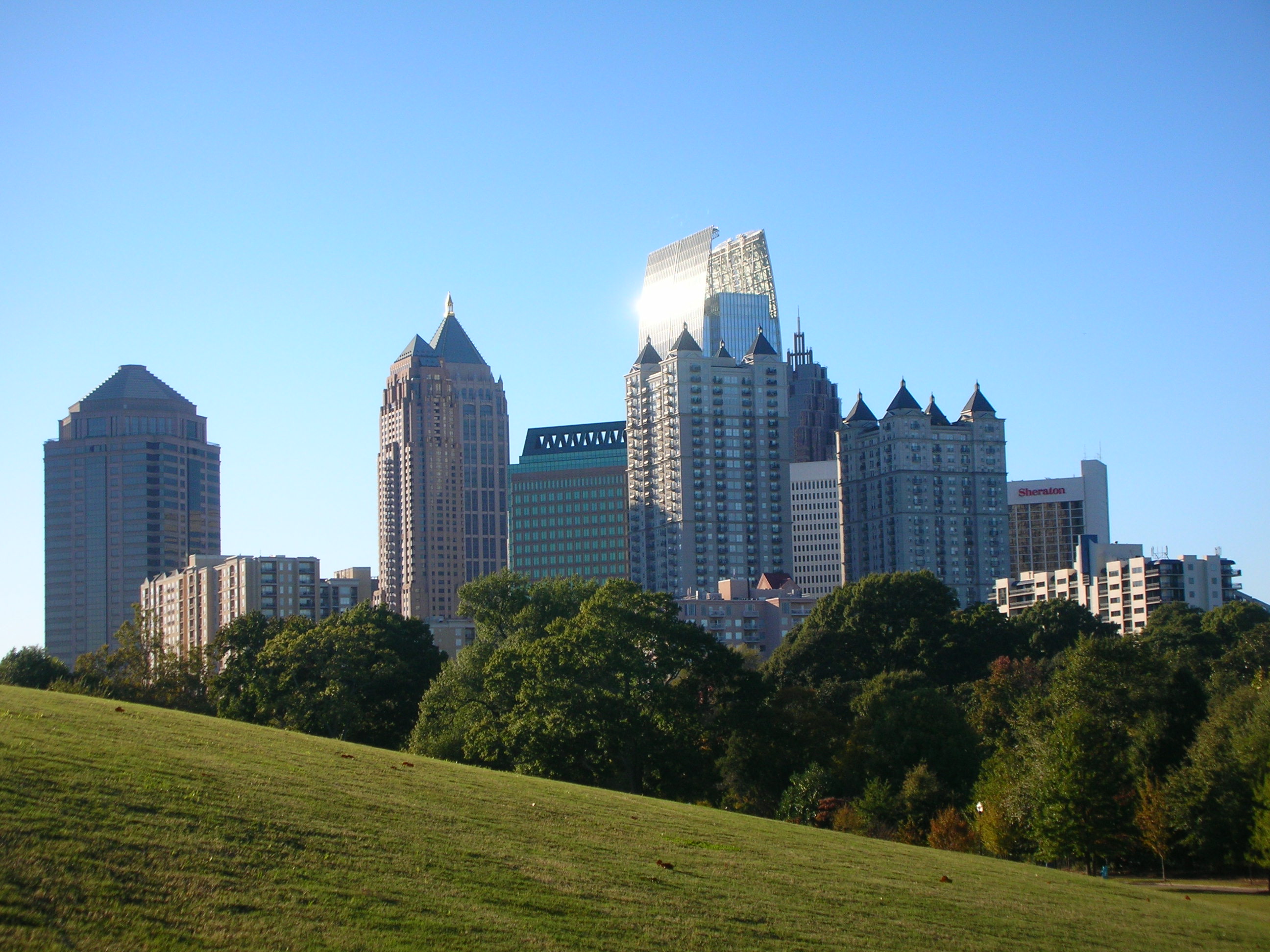
It wasn’t long ago that to see sustainability in action we had to go to other parts of the country.
Atlanta was being fined daily for infractions of the Clean Water Act, we were the asthma capitol of the country due to terrible air quality and we were listed among the most polluted cities in the US. Now, I am so proud to be a part of a community that has worked tirelessly to turn Atlanta into a model city of sustainability.
Atlanta has been looking to a more sustainable future since 2002 when Mayor Shirley Franklin took office. She answered the community’s desperate call to clean up the Chattahoochee and address the city’s mounting sewer problem in her first year in office. Then in 2008, she launched Atlanta’s Office of Sustainability, an internal organization focused on instituting sustainability best practices into the Atlanta community.
In 2010, Mayor Kasim Reed expanded the Office of Sustainability and announced his goal of making Atlanta one of the top ten sustainable cities in the country. He hired Denise Quarles as Director and charged her and her team with formulating a comprehensive sustainability plan. This resulted in the Power to Change program, a citywide initiative that establishes a basis for measurable sustainability action around 10 impact areas — including recycling, air quality, energy efficiency and water management. Five years later, have we made any progress?
One of Atlanta’s most effective initiatives is the Atlanta Better Business Challenge, a nation-leading public-private program. The Atlanta BBC was launched in June 2011 at the Clinton Global Initiative as one of the inaugural projects of President Obama’s and the Department of Energy’s Better Buildings Challenge program. The goal of the Atlanta BBC is to reduce energy and water consumption by at least 20% in participating buildings across Atlanta by 2020.
In August of 2015, Atlanta surpassed 100 million square feet of building space participating in the Atlanta BBC! Atlanta’s initial goal was a total 2 million square feet signed up for the program, but after Mayor Reed’s call to action to the Atlanta business community there was an amazing response! By surpassing this milestone, Mayor Reed says “This figure puts Atlanta at the top of the leader board in the nation.” Atlanta has already met our 20 percent reduction goal for water usage and achieved an 11 percent reduction of energy consumption.
This year we’ve also welcomed a new Sustainability Director, Stephanie Stuckey Benfield, who has an impressive track record of environmental advocacy. According to Stephanie, her goal is to “be able to build on the successes the office has already had through projects like the Better Buildings Challenge, municipal and residential recycling programs, and now the city’s first bike share program. Our goal is to make the City of Atlanta a top-tier city for sustainability.” I’m privileged to know Stephanie and am excited to see where her leadership will take us.
On top of the success of the Atlanta BBC, 2015 brought us another important milestone in energy efficiency. Georgia passed the Solar Finance Bill, aimed at making it easier and more affordable for Georgia homeowners and small businesses to put solar panels on their rooftops. This bill gets rid of the barrier of prohibitive upfront costs for homeowners to install solar by allowing for third party financing. Solar is an abundant resource in the Southeast. Between 2012 and 2013, employment in Georgia’s solar industry grew by 225 percent and we moved from 26th nationally in new solar capacity to seventh. In 2014, Pew Charitable Trusts named Georgia the fastest-growing solar market in the country. If you’d like to participate in taking Georgia solar and reducing your home energy costs you can find a certified solar installer at the North American Board of Certified Energy Practitioners website. (www.nabcep.org)
The Atlanta Beltline is another cornerstone sustainability initiative, compromising a 22-mile loop of parks, greenspace, trails and transit around the city. The BeltLine will add significantly more greenspace to the city and invest in mixed-use development and affordable workforce housing along the line. Ultimately this provides solutions to the challenges threatening to limit Atlanta’s health and prosperity – traffic, deficient greenspace, and inequitable economic development. While still under way, the BeltLine project is in the process of setting a national standard for transformative investment, sustainable growth and equitable development. The Beltline joins the over 300 miles of trails already built by the PATH Foundation in Georgia, rapidly transforming Atlanta into a bike and pedestrian-friendly city.
The lifeline of Atlanta, the Chattahoochee River, has also come a long way in just the last 20 years. Since upgrading the city’s sewage system there are 90% fewer spills into the river. Great work continues along the Chattahoochee with projects like Proctor Creek where environmental groups are fighting to clean up the river’s most degraded and polluted tributary in Metro Atlanta. (aboutproctorcreek.com).
Atlanta has also entered the international stage for sustainability initiatives. In September, Mayor Reed was the only mayor from the Southeast who participated in the U.S. – China Climate Leaders Summit in Los Angeles. In preparation for the United Nations Climate Change Conference in Paris, multiple community leaders from both countries met to define a first-of-its-kind Declaration which details parallel steps to address climate change at the state and local level.
These are just a few highlights of the initiatives happening now to make Atlanta one of the top-tier sustainability cities in the country. You can learn more about all of the initiatives on the Power to Change website at p2catl.com



